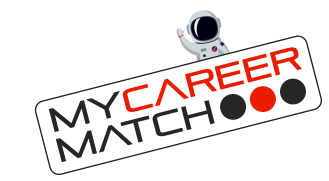Employability skills are highly valued by employers and are the keys to succeeding in today’s workplace.
Learning about the skills contained in this lesson may be the most important thing you can do for yourself to launch your career. Every employer is looking for a specific set of skills from students that match the skills necessary to perform a particular job. But beyond these job-specific technical skills, certain skills are universally sought by employers.
The good news is that most students possess these skills to some extent. The better news is that students with weaknesses in these areas can improve their skills through training, professional development, or obtaining coaching/mentoring from someone who understands these skills.
The best news is that once you understand the skills and characteristics that most employers seek, you can tailor your job-search communication - your resume, cover letter and interview language - to showcase how well your background and personality aligns with common employer requirements.
Here are the employability or job-ready skills that employers want:
1. FOUNDATIONAL SKILLS
- Be organised
- Arrive to work on time, or early
- Be dependable
- Have a positive attitude toward work
- Exert high levels of effort and perseverance
- Complete tasks on time and accurately
- Seek out information to improve skills
- Be flexible and adaptable
- Complete all tasks, even if unpleasant
- Understand dress code or uniform guidelines
- Maintain personal hygiene
2. INTERPERSONAL SKILLS
- Be friendly and polite
- Respect supervisors and coworkers
- Respond appropriately to customer requests
- Ask for feedback
- Take constructive criticism
- Resolve conflicts calmly and appropriately
3. COMMUNICATION SKILLS
- The ability to listen, write and speak effectively
- Organising and expressing ideas concisely
- Ability to get along with work colleagues
- Paying attention to nonverbal communication (body language)
- Having an open mind and being flexible
- Having respect for others
4. TEAMWORK
- Ability to work well with others in a positive and professional manner
- Sharing information, supporting and empowering other team members
- Responding constructively to the opinions of others
- Contributing to groups with ideas, suggestions and effort
- Healthy respect for different opinions, customs and individual preferences
- Sense of responsibility
5. POSITIVE ATTITUDE
- Ability to motivate yourself and be positive
- Believing in yourself and your abilities
- Showing more confidence including watching your body language
- Looking for solutions, instead of dwelling on problems
6. PROBLEM SOLVING
- Researching and selecting relevant information to solve a problem
- Analysing issues for underlying causes, assessing options, proposing solutions
- Thinking sequentially, critiquing and synthesizing information
- Gathering all the important facts, seeking advice and/or considering alternatives
7. INITIATIVE & LEADERSHIP
- Easily adjusting to new situations
- Mapping out ideas to an action plan
- Identifying innovative options
- Being committed to do your best and to get the job done
- Ability to lead by example, constantly looking to improve
8. PLANNING & ORGANISING
- Managing timelines and prioritising
- Allocating and coordinating tasks for self and others
- Anticipating future needs and forward planning
9. CREATIVE THINKING (INNOVATION)
- The ability to come up with original and elaborate new ideas
- The ability to critique and choose the best solution for the problem
10. PRESENTATION SKILLS
- Presentations are an inherent part of today’s workplace. From sales pitches to why you expect a pay increase this year, your goal is to instruct and persuade others. Perhaps your most important presentation skills are put to the test during the job interview process – your make-or-break chance of getting the job.
- There are primarily three levels of presentation skills that you will use in your career: business presentations, public speaking and general communication. All involve formal and informal levels, and while not all of them may pertain to your first job, they will at some point.
11. SELF-MANAGEMENT
- Operating independently and taking responsibility for your actions
- Being aware of one’s strengths and limitations
- Being able to communicate your ideas
- Taking pride in your work
- Being reliable and dependable
12. DIGITAL LITERACY
- Understanding current trends and developments, including social media
- Proficiency in using computers and telecommunication systems
- The ability to locate, organise, understand, evaluate and analyse information using digital technology
- A working knowledge of current high-technology, and an understanding of how it can be used
- Digital Literacy is a key 21st Century skill, which significantly enhances student employability.
SUMMARY
While your technical skills may get your foot in the door, your people (or employability) skills are what open most of the doors to come. Your work ethic, your attitude, your communication skills, and a whole host of other personal attributes are the employability (job-ready) skills that are crucial for career success.
Learning about the job ready skills contained in this lesson may be the most important thing you can do for yourself to get yourself ‘street smart’ and ‘job ready’.
“Ability is what you're capable of doing. Motivation determines what you do. Attitude determines how well you do it.” Lou Holtz

